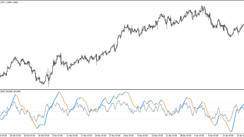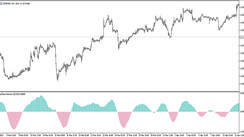Day trading is more than a simple exercise in buying and selling assets. It's an intricate dance of discipline, patience, adaptability, and intelligence. It's not about being born with the ability to trade but cultivating the necessary traits to navigate the ever-changing landscape of the market. If you're thinking of diving into day trading or want to understand what separates successful traders from the rest, this comprehensive guide will unveil the critical traits and strategies that can turn the odds in your favor.
Key Takeaways
- Success in day trading demands relentless effort and the development of specific skills.
- Natural talents can give a head start, but continuous growth is vital for long-term success.
- The fundamental traits that shape successful traders include discipline, patience, adaptability, mental toughness, independence, and forward thinking.
1. Day Trader Discipline
A. Understanding Discipline
- Discipline is an essential trait that every trader must master.
- In a world filled with endless opportunities, knowing when and where to make your move is key.
- Strategic trading is more about waiting for the right moment than constantly taking action.
B. Importance of Trading Discipline
The market constantly presents myriad opportunities to trade. With thousands of stocks to choose from, it's easy to get lost in the possibilities. Interestingly, only about five seconds of actual trading activity occurs in a day that is worthwhile.
- Avoid unnecessary trades and distractions.
- Know when to enter and exit trades.
- Stay disciplined even when not trading.
When you initiate a trade, discipline requires that you follow through without hesitation, adhering to your plan. Recognize that actual trading time is minimal, and most of your time should be spent in disciplined anticipation.
2. Patience
A. The Relationship Between Patience and Discipline
- Patience is closely connected to discipline.
- Effective trading involves waiting for the right entry and exit points.
- Misjudging the timing often leads to the phrase, "My timing is off." In reality, this might mean, "My patience is off."
B. Cultivating Patience in Trading
It is common for new traders to jump into trades too early or too late. This impatience leads to mistakes and must be tempered with discipline.
- Develop patience to wait for perfect entry and exit.
- Balance patience with swift action when required.
- Practice the cycle of patience, action, patience.
3. Adaptability
A. Trading Days are Never the Same
- No two trading days are identical.
- Adapting to different market conditions is essential.
- Mental flexibility allows you to adjust your strategies as needed.
B. The Importance of Being Adaptable
Successful traders must be able to navigate various market conditions, including volatility, trends, or ranges. Understanding when to employ different strategies or when to refrain from trading is a crucial skill.
- Adjust to real-time conditions.
- Avoid rigidly sticking to textbook examples.
- Recognize that failing to adapt can result in significant capital loss.
4. Mental Toughness
A. The Need for Resilience
- The market is unforgiving and requires a thick skin.
- Losing trades are constant; the key is to bounce back.
- Maintaining focus even during losing streaks is essential.
B. Developing Mental Toughness
Success in trading doesn't mean never losing. Successful traders might win slightly more often, or their wins might be more significant than their losses.
- Stay focused on your trading plan.
- Avoid being discouraged by losses.
- Understand that mental toughness may involve making the hard choice of not trading.
5. Independence
A. The Path to Independence
- Initially, guidance may be sought, but eventually, independence must be developed.
- Independence is about crafting a personal trading style.
- Building a personal toolbox and taking responsibility for education, profits, and losses is vital.
B. Importance of Independence
Becoming independent in trading is not about facing the world alone but about cultivating a method that suits you.
- Learn from others, but make decisions independently.
- Avoid reliance on mentors or services that may not always be available.
- Start your trading journey by taking responsibility early.
6. Forward-Thinking Trading
A. Planning the Next Moves
- Day traders must plan ahead like chess masters.
- Forward-thinking involves constant reevaluation based on new information.
- Being prepared for various scenarios allows decisive action without hesitation.
B. Practicing Forward Thinking
Forward-thinking traders visualize different outcomes and have defined protocols for rare but inevitable events.
- Talk yourself through potential scenarios.
- Consider the psychological effects of different market movements.
- Practice to make forward thinking almost instantaneous.
Conclusion: The Final Word on Day Trading Traits
Day trading is a pursuit that many embark upon, but only a select few truly master. It's not just about algorithms, market analysis, or being the smartest person in the room. The true essence of successful trading lies in personal attributes and mental fortitude.
Unearthing the Key Traits
Success in day trading comes down to these key traits:
- Discipline: The unbreakable resolve to follow your plan.
- Patience: The ability to wait for the perfect moment to strike.
- Adaptability: The wisdom to adjust to changing market conditions.
- Mental Toughness: The resilience to bounce back from losses.
- Independence: The confidence to create your own path.
- Forward Thinking: The foresight to plan and anticipate future scenarios.
Each of these traits intertwines with one another, forming a delicate dance that, when executed with precision and understanding, leads to profitable trading.
Personal Growth and Continuous Learning
It's important to understand that successful day trading depends more on your commitment to growth and development rather than any innate talent. Balancing your weaknesses with strengths to minimize potential harm and working diligently to improve is vital. Your journey towards mastering the art of trading is a lifelong pursuit, full of lessons, insights, and continual refinement.
Integrating FAQs into the Trading Pathway
As we navigate the multifaceted world of day trading, there are naturally questions that arise. Some of these are often repeated, and addressing them here allows a seamless continuation of our exploration into the subject.
-
How do you learn day trading skills?
Learning to day trade requires hands-on experience. Utilizing demo or "paper" accounts provides risk-free opportunities to practice, while reading books, taking courses, and finding mentors can offer foundational knowledge. It is a continuous cycle of learning, practicing, and improving.
-
How many day traders are successful?
The SEC warns that most day traders initially suffer financial losses. However, the failure rate is often linked to a lack of preparation and understanding of essential traits such as discipline and patience. With proper planning, strategy, and a willingness to learn, success becomes a reachable goal.
-
How much do successful day traders make per day?
The earnings vary based on the definition of success and capital used. Making 1% per day could be considered successful, but this can vary widely depending on the amount being traded and the strategies employed. Remember, success in day trading is not merely measured in monetary terms but also in the growth, confidence, and resilience of the trader.
In Reflection
Unlocking success in day trading requires more than just a strong understanding of the market. It necessitates a deeper comprehension of oneself, a relentless pursuit of excellence, and a willingness to adapt. Through the exploration of essential traits, the commitment to growth, and the answering of common inquiries, the path to becoming a successful trader becomes clearer.
The journey might be arduous and fraught with challenges, but the rewards, both financially and personally, are potentially immense. Remember, the market is an ever-changing entity, and your ability to dance with it, rather than against it, will define your success. By approaching trading with intelligence, style, and grace, you not only set yourself up for financial success but also embark on a journey of personal discovery and growth. The market awaits, and the path is yours to walk.





